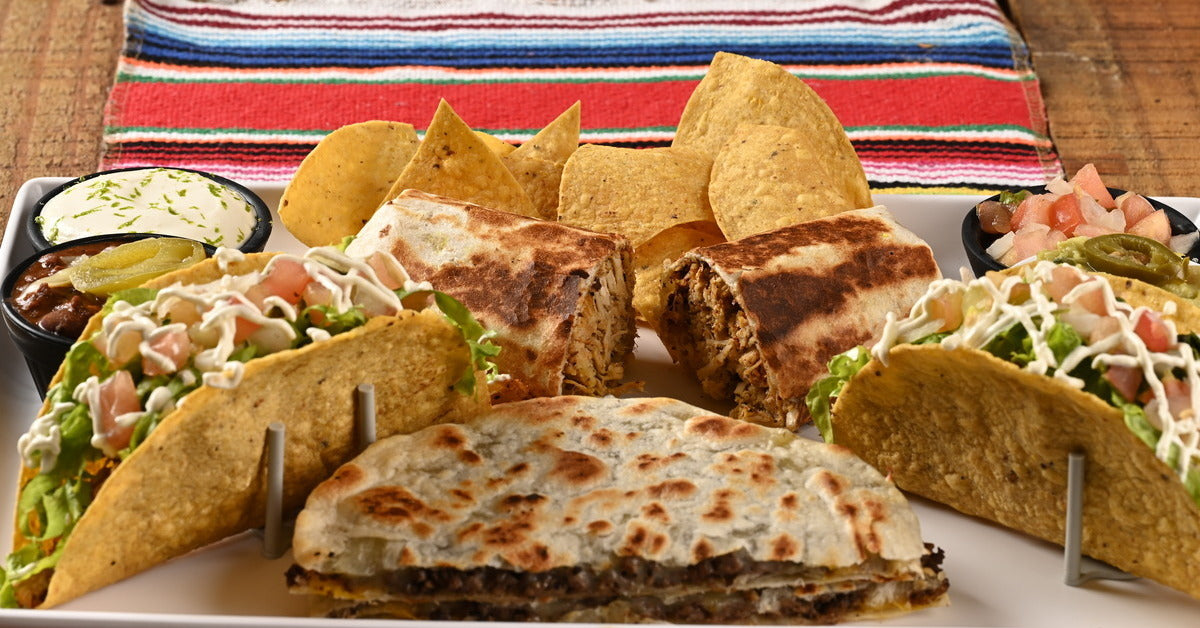Which Reigns Supreme for Your Next Meal?
The world of cooking oils can feel like a confusing maze. Canola, coconut, vegetable, olive, avocado – each promises something different, but which oil reigns supreme for your next culinary masterpiece? The type of oil you use can make a significant difference in the flavor, health benefits, and overall quality of your meals. This article dives into the properties of these common cooking oils, explores their strengths and weaknesses, and explains why Rise & Puff chooses avocado oil for their delicious premade gourmet quesadillas and healthy flour tortillas.
Fat Facts: Understanding the Difference in Cooking Oils
Before we dive into specifics, let's establish some ground rules. All cooking oils are pure fat, meaning they contain a high number of calories per serving. However, the type of fat plays a crucial role in their health benefits and cooking applications. Here's a breakdown of the key players:
- Canola Oil: A popular choice due to its neutral flavor and high smoke point (the temperature at which the oil breaks down). It's relatively low in saturated fat and contains some monounsaturated fats. However, some concerns exist regarding it being highly processed and the potential for containing genetically modified organisms (GMOs).
- Coconut Oil: This trendy oil boasts a unique coconut flavor and semi-solid texture at room temperature. It has also gained popularity for containing medium-chain triglycerides (MCTs), which the body can quickly use for energy. It's high in saturated fat, which has been a topic of debate in recent years. While some studies suggest potential health benefits, moderation is key. It's ideal for baking and sautéing, imparting a subtle coconut taste to dishes.
- Vegetable Oil: A generic term for a blend of oils, typically soybean, corn, or canola. Its neutral flavor and high smoke point make it a versatile choice. However, like canola oil, it’s usually highly processed and can contain GMOs. It's also less nutritious compared to other oils on this list.
- Olive Oil: Olive oil, especially extra virgin olive oil, is celebrated for its rich flavor and numerous health benefits. A champion of the Mediterranean diet, olive oil is praised for its heart-healthy monounsaturated fats and antioxidants, which can help reduce inflammation. It’s best used for dressings, drizzling over dishes, and low to medium-heat cooking to preserve its delicate flavor and nutrients.
- Avocado Oil: This rising star is extracted from the flesh of avocados and boasts a high smoke point, a neutral flavor, and a good amount of healthy fats. It's becoming a popular choice for its versatility and potential health benefits. It’s rich in monounsaturated fats, vitamins E and K, and antioxidants. Avocado oil supports heart health, skin health, and has anti-inflammatory properties. Its high smoke point makes it perfect for frying, grilling, and sautéing.
Rise & Puff's Choice: Why Avocado Oil Makes the Perfect Quesadilla Match
So, why does Rise & Puff choose avocado oil for their premade gourmet quesadillas and healthy flour tortillas? Here's the logic behind their decision:
- High Smoke Point: Rise & Puff prioritizes convenience. Their quesadillas are designed for quick and easy heating, whether in a skillet, microwave, or air fryer. Avocado oil's high smoke point ensures the tortillas cook up perfectly without burning.
- Neutral Flavor: Rise & Puff offers a variety of gourmet fillings, from Truffled Mushroom to BBQ Pulled Chicken. Avocado oil's neutral flavor allows the delicious fillings to take center stage.
- Clean Ingredients: Rise & Puff prioritizes using clean, premium ingredients. Avocado oil aligns with their mission of transforming healthy ingredients into gourmet flavors.
The Butter Debate: Why Less is More in Quesadillas
While butter adds a delicious richness, Rise & Puff chooses to skip it in their quesadillas. Here's why:
- Saturated Fat: Butter is high in saturated fat, which should be consumed in moderation.
- Burning Point: Butter has a lower smoke point than avocado oil, making it less suitable for high-heat cooking needed for quesadillas.
- Calorie Control: Rise & Puff keeps their focus on healthy convenience. Avocado oil helps them keep the calorie count of their premade gourmet quesadillas at 300 calories or less.
The Final Bite: Choosing the Right Oil for Your Culinary Journey
There's no single "best" oil for every situation. Coconut oil might be perfect for baking, while avocado oil shines for its versatility. Olive oil, with its lower smoke point, is best reserved for drizzling and lower-heat cooking.
When it comes to Rise & Puff quesadillas and tortillas, avocado oil is the secret ingredient that unlocks convenience and flavor. Their commitment to clean ingredients and healthy choices, without sacrificing taste, means you can enjoy a gourmet quesadilla experience in minutes, knowing you're fueling your body the right way. So, grab your favorite Rise & Puff flavors and explore the world of healthy and delicious cooking!
Sources for Fat and Oil Information:
- The American Heart Association offers a helpful guide on different fats and their impact on health.
- The Mayo Clinic provides a breakdown of vegetable oil and its composition.
- The USDA explains the manufacturing process of canola oil.
Sources for Specific Cooking Oil Information:
- Canola oil information can be found on the Canola Council of Canada website
- Coconut oil information can be found on the American Heart Association website discusses its saturated fat content and potential health implications.
- Information on the varying smoke points of oils can be found on the Kitchen
Source for Avocado Oil:
- The health benefits and properties of avocado oil are explored on the California Avocado Commission website

















Leave a comment
All comments are moderated before being published.
This site is protected by hCaptcha and the hCaptcha Privacy Policy and Terms of Service apply.